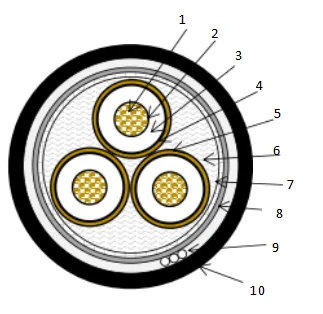Nov . 24, 2024 06:19 Back to list
threaded ball valve
Understanding Threaded Ball Valves A Comprehensive Overview
Threaded ball valves are essential components in various piping systems, designed to control the flow of fluids with precision and reliability. These valves are known for their robust construction, ease of use, and ability to provide a tightly sealed connection, making them popular in numerous industrial applications.
The Basics of Ball Valves
A ball valve operates by using a spherical disc, known as the ball, which has a hole through its center. This ball rotates within the valve body, controlling the flow of fluid based on its position. When the valve is open, the hole aligns with the flow path, allowing fluid to pass through. Conversely, when the valve is closed, the ball rotates 90 degrees to block the flow entirely. This simple mechanism ensures quick shut-off capabilities, often requiring just a quarter turn to open or close the valve.
Threaded Connections
Threaded ball valves are specifically designed for easy installation and maintenance. The threaded ends allow for direct connection to pipes, enabling straightforward assembly without the need for additional fittings. This feature is particularly advantageous in applications where space is limited, or quick repairs are essential. The threads can be male or female, and variations in thread type (such as NPT - National Pipe Tapered or BSP - British Standard Pipe) are available to meet different standards across regions.
Advantages of Threaded Ball Valves
1. Ease of Installation The threaded design simplifies the process of connecting the valve to existing piping systems. This can reduce labor costs and downtime during installation or repairs.
threaded ball valve

2. Durability Made from robust materials like stainless steel or brass, threaded ball valves are built to withstand high pressures and temperatures, thus ensuring longevity in demanding environments.
3. Leak-Free Operation A well-designed ball valve creates an effective seal when closed, significantly reducing the risk of leaks, which is crucial for maintaining safety and efficiency in fluid transport.
4. Versatility These valves can be used with a variety of fluids, including water, oil, and gas, making them suitable for a wide range of applications, from residential plumbing to industrial processes.
Applications
Threaded ball valves are employed in numerous sectors, including plumbing, oil and gas, chemical manufacturing, and food processing. In residential settings, they control the water supply, while in industrial applications, they manage the flow of hazardous chemicals. Their versatility makes them a critical component in ensuring smooth operations in both domestic and commercial systems.
Conclusion
In summary, threaded ball valves are indispensable tools for controlling fluid flow in various applications. Their ease of installation, durable construction, and reliable performance make them a favored choice among engineers and technicians alike. Understanding their functions and benefits can help in selecting the right valve for specific needs, ultimately leading to enhanced efficiency and safety in fluid management systems. When considering valves for your next project, the threaded ball valve should undoubtedly be on your list.
Share
-
Reliable Wafer Type Butterfly Valves for Every IndustryNewsJul.25,2025
-
Reliable Flow Control Begins with the Right Ball Check ValveNewsJul.25,2025
-
Precision Flow Control Starts with Quality ValvesNewsJul.25,2025
-
Industrial Flow Control ReliabilityNewsJul.25,2025
-
Engineered for Efficiency Gate Valves That Power Industrial PerformanceNewsJul.25,2025
-
Empowering Infrastructure Through Quality ManufacturingNewsJul.25,2025